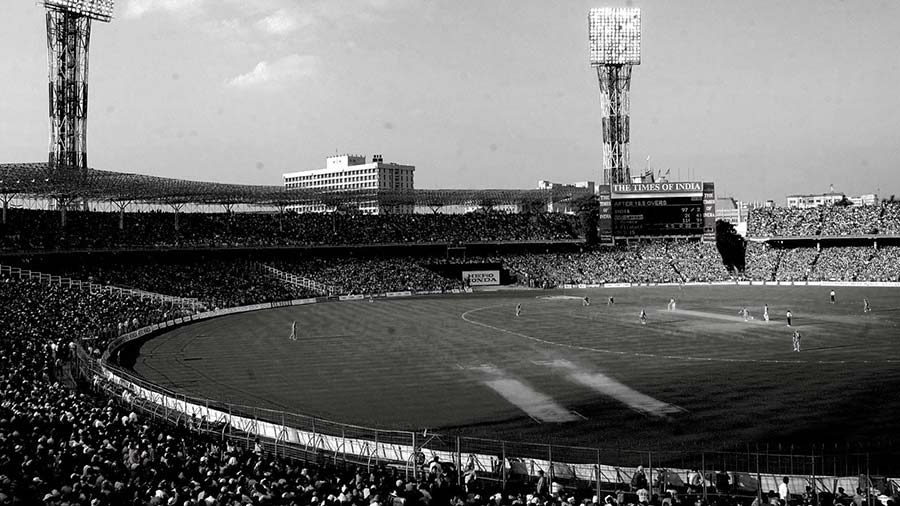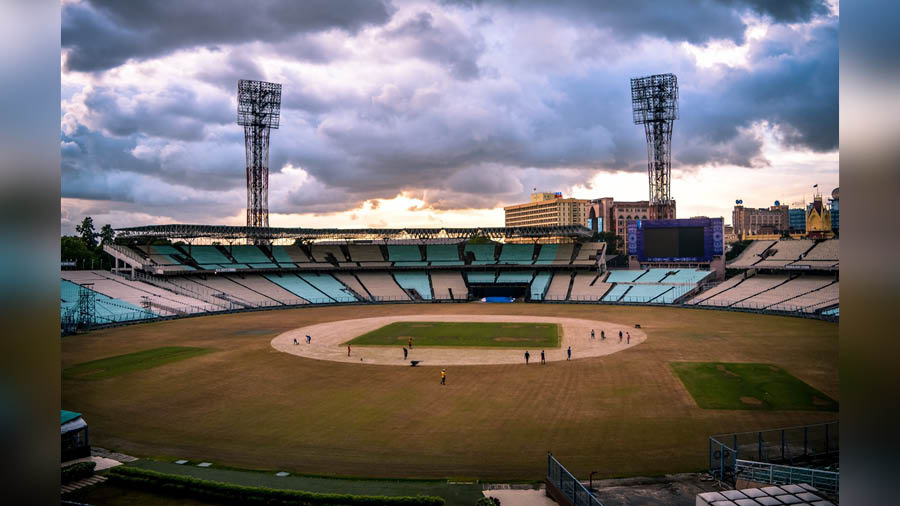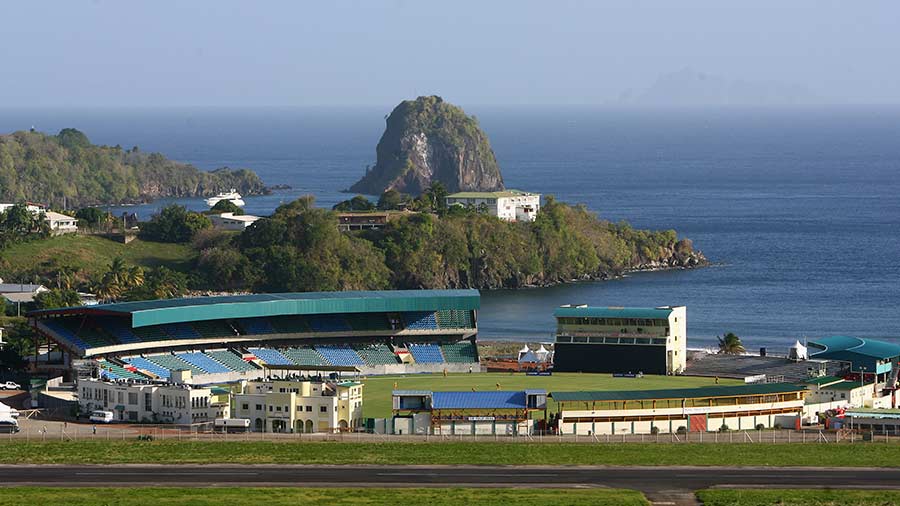The Garden of Eden. The spiritual centre of Indian cricket. A ground revered not just by Indian cricketers, but by cricketers world over. Yet, from time to time, a darker, more menacing side of the fandom has raised its head, which has shamed this magnificent amphitheatre. The writer himself was witness, first hand, to such incidents in 1999 in a historic India vs. Pakistan test match. Three years earlier, I had watched teary eyed on TV as India’s World Cup hopes sank along with Eden’s reputation, even as the world watched in shock.
There had always been an edge to the crowd at Eden. In its very first official test match in December, 1934, as Maurice Nichols was bowling something close to Bodyline, no doubt on Douglas Jardine’s orders, sections of the crowd bristled with righteous anger. Then in 1945, against an Australian Services team featuring the legendary Keith Miller, the decision to drop flamboyant opener S Mushtaq Ali led to massive protests and calls of “No Mushtaq, No test” which eventually resulted in the crowd darling being reinstated.
Merry bunch of men
But none of this could have ever foreshadowed what went down on the New Year’s Day of 1967. These were the times when cricket had not become the near everyday affair it is today. In India, it was mainly played in the winter. That year, Sir Gary Sobers’s West Indies were visiting. By chance or design, Calcutta often played host for the New Year test match. The legacies of the colonial era were still strong and visiting teams loved the festival vibes that enamored the city during the late days of December.
And a merrier bunch never descended on the city than Sobers’s men. In the nights leading up to the test match, they painted the town in all colors. Legend still persists of a hand-pulled rickshaw striding into Great Eastern Hotel at 3 in the morning. Sprawled on its seat was a star West Indian cricketer, sloshed and passed out! But no matter how hard they partied, the West Indians meant business. Already at Bombay, they had handed the hosts a comprehensive defeat.
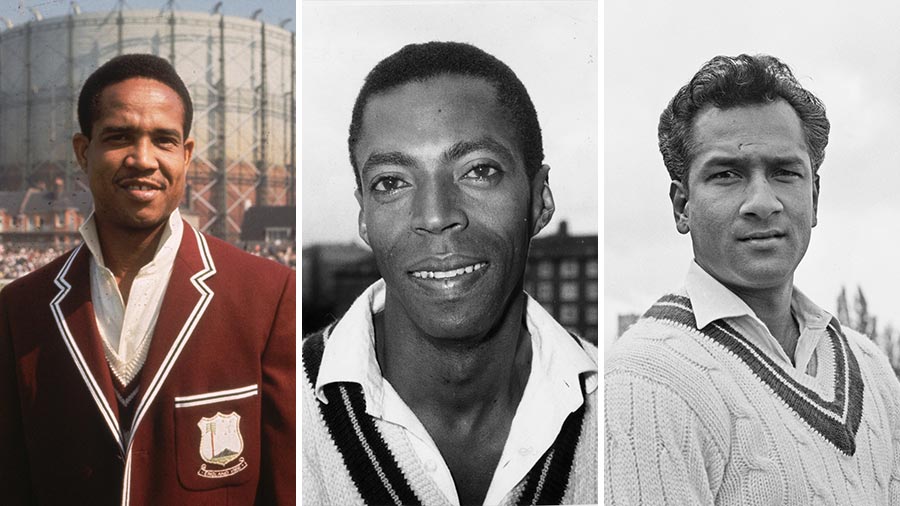
The visitors were a star-studded team with (left) Gary Sobers, (centre) Lance Gibbs and (right) Rohan Kanhai, among several others, as major attractions Getty Images
20,000+ counterfeit tickets in circulation
In the days were there was no television and tours were few and far between (the last test at Eden was for example in March ’65, almost two years earlier). The visitors were a star-studded team with Sobers, Rohan Kanhai, Conrad Hunte, Lance Gibbs, Wes Hall and Charlie Griffith major attractions. The style and flamboyance with which they went about their business made them darlings of the crowd everywhere. Understandably, there was a mad clamour for tickets. Unfortunately, in addition to legal tickets, 20,000+ counterfeit ones were also in circulation.
The match kicked off on the last day of 1966. There were few skirmishes with more people packed in than the official capacity, but fortunately, it didn’t go out of hand. But tempers were running high. Next day, as the match was about to resume, early omens were not good. It was New Year’s Day and a Sunday. The crowd was massive. Unable to get a seat or even a place to stand, many started crossing over the perimeter and stood at the edge of the boundary. It was then that the policemen on duty started doing lathi charge and used tear gas to force the people back into the gallery. Their indiscriminate and unfortunate action led to a senior gentleman getting cracked on the head and collapsing in a pool of blood. This sight led to a wild reaction from the crowd. They now retaliated and started attacking the policemen. Soon, bricks, shoes and such were being hurled at the cops. Some agitated fans dislodged the bamboos which held up the awning and broke parts of wooden benches and used them as weapons. Worse, the canvas roof was set to fire.
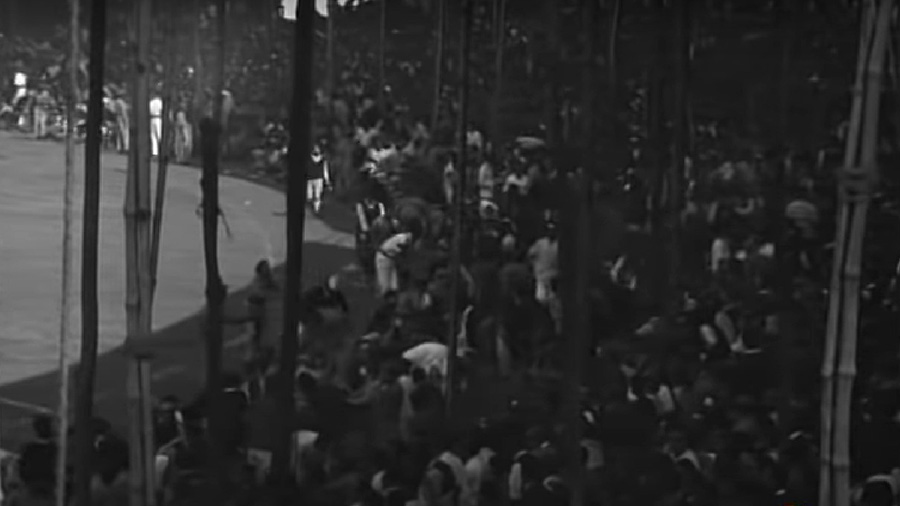
Some agitated fans dislodged the bamboo poles that held up the awning and used them as weapons Films Division of India
National flags under fire
As mayhem gripped the ground, the frightened players ran outside. But the carnage had by this time spread there as well with agitated fans hurling stones at passing buses. Most of the players rushed to the Mohun Bagan club and took shelter there. Fast bowler Charlie Griffith lost his way, ran all around the Maidan in the wrong direction and arrived at the hotel, almost out of breath.
Inside the stadium, the fire now started to spread to the stands where the flags of the two nations had been hoisted. It has long been believed that it was West Indian opener Conrad Hunte, who, risking his life, climbed the flagpole and retrieved the flags. In his autobiography, Hunte clarifies that although he proceeded to do the same; a plainclothes-clad policeman stopped him and retrieved the flags, braving the raging fire. The identity of this policeman sadly remains unknown.
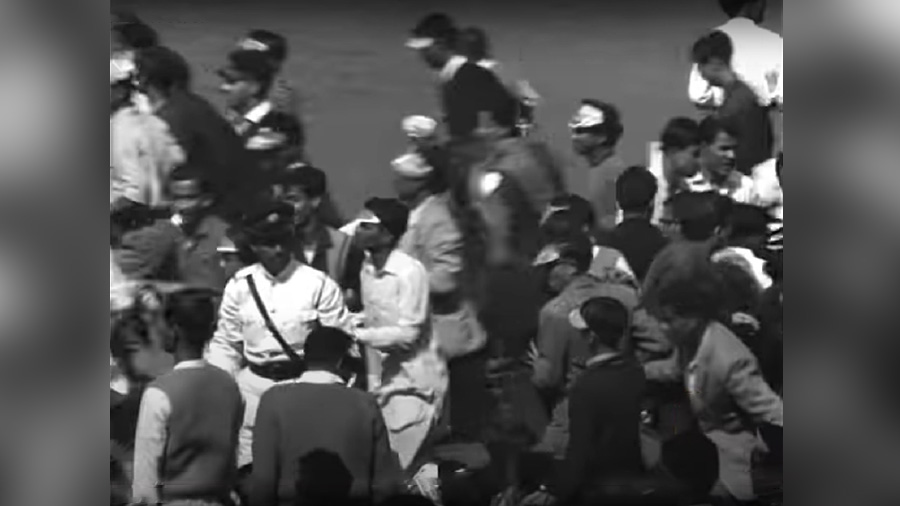
A policeman tries to control the crowd Films Division of India
Play stood cancelled for the day. Day 3 was the rest day. The West Indian captain Sobers refused to take his team out to play. Sincere appeals were made by his counterpart Nawab of Pataudi, West Bengal Chief Minister P.C. Sen and BCCI vice-president M.A. Chidambaram. An offer was made to fly down commandos from Delhi for protection. But Sobers & his players remained unconvinced. The lone countering voice in the Caribbean dressing room was that of vice-captain Conrad Hunte. He kept pleading for resumption of play. The impasse was eventually resolved thanks to former West Indian captain Sir Frank Worrell. In the city to deliver a lecture, Worrell was persuaded to intervene by Dilip Ghosh of the Gymkhana Club and eventually managed to make Sobers change his mind.
Play resumed on Tuesday and the West Indians made mincemeat of Pataudi’s men, handing then a humiliating innings defeat. But more importantly, the rest of the match passed off without any major incident.
But for the very fact that the match continued to its conclusion, Eden had to thank Conrad Hunte, Sir Frank Worrell and the forgotten Gymkhana club official Dilip Ghosh.
